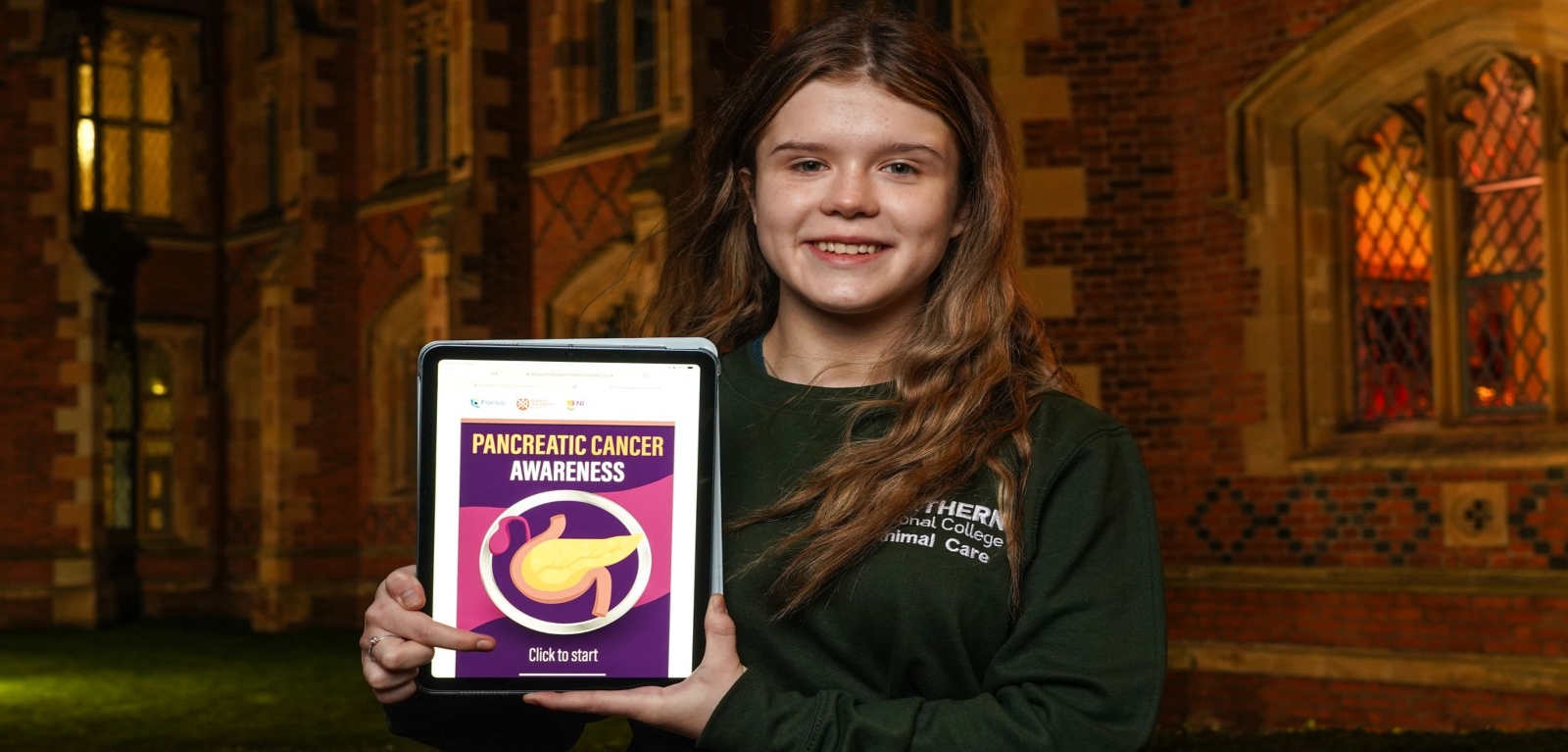Game launched by Queen's and NIPANC to promote public awareness of pancreatic cancer
The first digital game to promote public awareness about pancreatic cancer has been launched by co-creators, researchers from Queen’s University Belfast and local pancreatic cancer charity NIPANC.

The Serious Game, now live and available to play, is part of NIPANC’s #TimeMatters campaign which during November, World Pancreatic Cancer Awareness Month, is encouraging people to take life saving action by learning about the symptoms of the disease and where necessary seeking early diagnosis, referral and treatment.
The aim of the digital game is to persuade the public to put their fears aside and get to know the symptoms of the disease so other families don’t have to go through what they have.
Ellie Irvine (16) who lost her dad Noel (54) to pancreatic cancer when she was just eight-years-old was among the first to give the game, which can be played on any smart phone, tablet or computer, the thumbs up.
She said: “Players get asked random questions from a question bank about pancreatic cancer. If you get the question correct, you progress in the game. Players get about 90 seconds to play but can have multiple attempts at answering the questions. After every question, players get the correct answer and find out the reasoning behind it.
“Pancreatic cancer is not an easy subject matter so I think this is a really quick, easy and less scary way of getting people, friends and families, to know more about the disease and go to their doctor if they are concerned about symptoms. There is hope but only if it gets caught early.”
The project, which began in June 2022 is led by Dr Gary Mitchell, a registered nurse and senior lecturer from the School of Nursing and Midwifery at Queen’s University.
He said: “As far as we know this is the first-time gaming technology has been used with an educational purpose for pancreatic cancer. Despite its novelty, games have shown promising results in raising awareness and changing perceptions in other areas such as flu or dementia.
“The end result involved a number of workshops in which we talked to people who live or have lived with the disease. We consulted with those who have been affected by pancreatic cancer including family members and carers, advocates, medical professionals and members of the public to understand what the key messages should be for the game and how it should look. Together we co-created the Serious Game.”
Ivan McMinn MBE, Chairperson of NIPANC is a pancreatic cancer survivor and among only 1% of people to survive the disease past ten years. He said: “The launch of the Serious Game is another tool in our armoury against this deadly disease. Over 250 people are diagnosed with the condition in NI and the numbers are on the increase. Survival rates have not improved much in the last 40-years. The reality is people may not experience any symptoms in the early stages and the disease is often at an advanced stage when diagnosed.
“With late diagnosis and the small number of treatment options available means survival rates are low. Pancreatic cancer is often referred to as the silent killer because early signs and symptoms can be vague and difficult to recognise even for GP’s.
“That’s why we are also announcing funding for further digital innovation to support medical professionals diagnose pancreatic cancer. Early detection will help identify patients who are candidates for surgical resection which still represents the best chance of a cure.”
NIPANC provided the full funding required by Queen's to develop the app which also signposts players to other important services and resources.
Please visit www.nipanc.org/symptoms to download the game.
Media
Media inquiries to s.devlin@qub.ac.uk